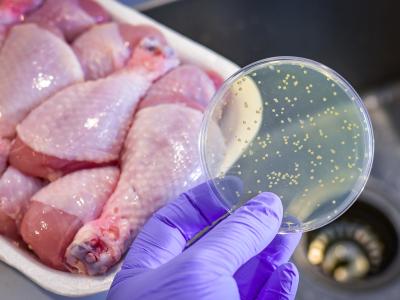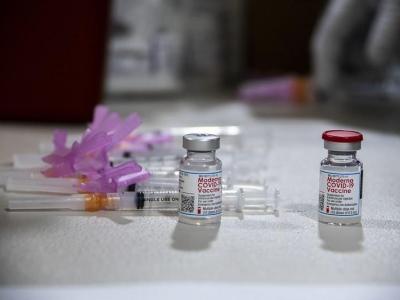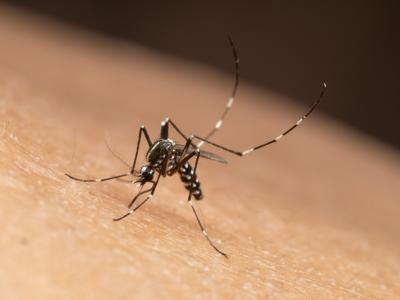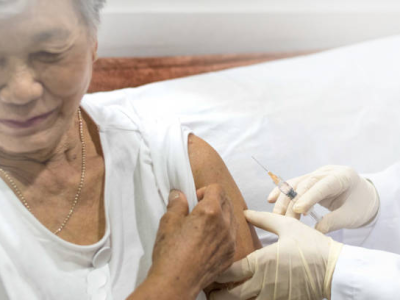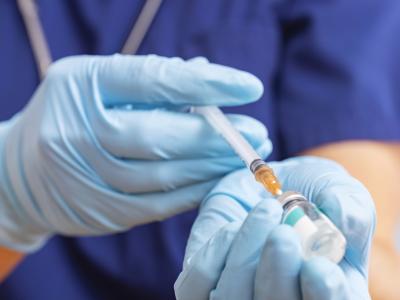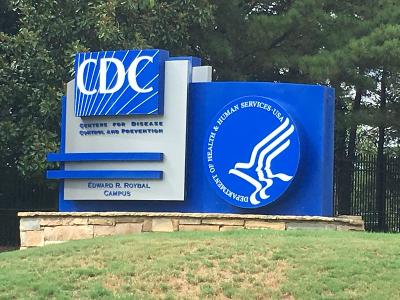Groups urge Wendy's to cut antibiotics from beef supply chain
A coalition of food safety, health, and consumer groups today urged fast-food giant Wendy's to phase out the use of medically important antibiotics in its beef supply chain.
In a letter delivered at the annual meeting of Wendy's shareholders, the Antibiotics Off the Menu coalition called on the company to adopt a time-bound, verifiable policy for all its US beef suppliers that prohibits routine use of medically important antibiotics in cattle. This kind of commitment, the group writes, "will send a clear signal to meat producers and consumers that preserving the efficacy of these precious medicines is a top priority for Wendy's."
Last year, Wendy's said it would source 20% of its hamburger meat from a group of US producers who've committed to a 20% reduction in the use of the antibiotic tylosin, and would increase that amount over time. But the coalition wants the company to follow the lead of McDonald's, which in December 2018 announced it will work with its beef suppliers in the United States and nine other countries to cut the use of all medically important antibiotics. The policy requires McDonald's to set reduction targets by 2020 and to report progress on meeting those targets by 2022.
According to the most recent report from the US Food and Drug Administration, 42% of the medically important antibiotics sold for use in food-producing animals in 2017 were intended for use in cattle.
"We know change is possible—we've seen it happen before when the fast-food restaurant industry took a stand on chicken," Lena Brook, director of food campaigns at the Natural Resources Defense Council (NRDC), said in a press release. "Wendy's has a responsibility to its customers to use its market influence for good, before these lifesaving drugs stop working when sick people and animals need them."
The coalition, which also includes US PIRG, the Center for Food Safety, Food Animal Concerns Trust, Consumer Reports, and the Antibiotic Resistance Action Center, is asking the six largest fast-food companies in the world to reduce medically important antibiotic use in all the meat they serve.
Jun 4 Antibiotics Off the Menu letter to Wendy's
Jun 4 NRDC press release
CEPI, Themis announce chikungungya vaccine partnership
Themis Bioscience and the Coalition for Epidemic Preparedness Innovations (CEPI) today announced a second partner agreement that will target CEPI funding, supported by the European Union Horizon 2020 program, to provide up to $21 million to fund the company's chikungunya vaccine.
According to a Themis press release, the plan is designed to speed the regulatory approval of Themis's MV-CHIK vaccine and support a phase 3 trial, which the company expects to apply for in the second half of 2019, with the trial expected to start shortly after. The multicenter trial will launch in Europe, the United States, and elsewhere in the Americas and will test a single-injection regimen.
The vaccine has already received fast-track designation from the US Food and Drug Administration (FDA) and priority designation by the European Medicines Agency (EMA).
Currently, no drugs or vaccines are available to treat or prevent chikungunya, and the two groups said climate change could make more parts of the world habitable to mosquitoes that spread the disease, increasing the size of the human population at risk for the disease.
Richard Hatchett, MD, CEPI's chief executive officer, said in the release, "Our partnership with Themis represents an important step forward in the world's efforts to address chikungunya. Through our partnership we look to accelerate the development of this vaccine candidate and to ensure that the people most affected by this virus can also benefit from this product."
CEPI was founded in 2017 in the wake of West Africa's Ebola outbreak as a novel way to fund and speed the development of new vaccine candidates against emerging infectious diseases, especially Middle East respiratory syndrome coronavirus (MERS-CoV), Nipah virus, and Lassa virus. It is supported by seven nations and a host of global health groups. So far, CEPI projects have committed $370 million in funding for 13 vaccine candidates: 5 against Lassa virus, 4 against MERS-CoV, 3 against Nipah virus, and 1 against chikungunya. Also, CEPI has targeted funding toward three vaccine platforms to develop vaccines against disease X, a hypothetical disease that could trigger an epidemic.
Jun 4 Themis news release
Department of Defense funds Zika vaccine candidate
The US Department of Defense (DOD) awarded the Texas Biomedical Research Institute $2 million over the next 3 years to study an experimental Zika vaccine in pregnant animal models.
Though Zika, a flavivirus, mostly causes mild illness, it can cause severe birth defects in fetuses and newborns, including microcephaly.
The DOD funds will help researchers working with mouse models and marmosets to see if a vaccine is protective to fetuses if administered to pregnant animals before exposure to the virus, and to determine if mothers pass any Zika antibodies to their offspring.
"If there's something we can do to intervene for a pregnant woman and her fetus who are at risk, it's certainly something we want to be looking at. I think most of the work being done now is focused on how we intervene during pregnancy since that is where the risk is," said Jean Patterson, PhD, of Texas Biomed and a principal investigator on the study, in a press release.
Jun 3 Texas Biomed press release
Study: 10% of medical masks contaminated with respiratory viruses
A new study conducted in three Beijing hospitals shows that 10.1% of tested medical facial masks were contaminated with respiratory viruses, including adenovirus, respiratory syncytial virus (RSV), and influenza virus. The study appeared today in BMC Infectious Diseases.
In the study, 148 health care workers wore medical masks for 6- to 8-hour shifts. The upper portion of the mask was then tested for viruses, based on a pilot study conducted by the same research group that showed where viruses collected on masks worn by mannequins.
Fifteen of 148 masks tested positive for viruses. Adenovirus was most commonly isolated from the masks (7), followed by bocavirus (2), RSV (2) and influenza virus (2).
Masks worn for more than 6 hours were associated with more viruses (14.1% [14/99] vs 1.2% [1/49]; odds ratio [OR], 7.9; 95% confidence interval [CI], 1.01-61.99) and in samples used by workers who examined more than 25 patients per day (16.9% [12/71] vs 3.9% [3/77]; OR 5.02; 95% CI, 1.35-18.60), the authors said.
"Staff should be aware of the risk associated with the reuse and extended use of masks and respiratory protective devices and high clinical contact," the authors concluded.
Jun 3 BMC Infect Dis study
